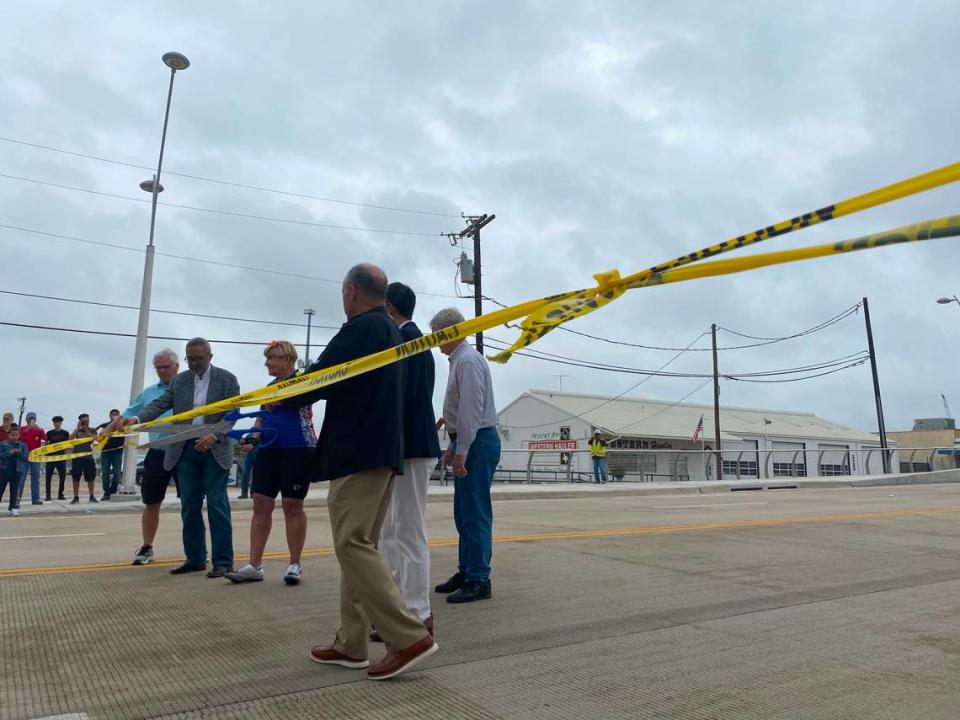Fort Worth pauses name change for White Settlement Road, but issue isn’t going away | Opinion
In the summer of 2021, Fort Worth Mayor Mattie Parker took a strong stance: It’s time for White Settlement Road to get a new name.
After months of discussion and significant public input, it’s no longer a priority. An evaluation of possible names for the new bridges built for the Panther Island project — one of which stretches along the road in question — is on hold.
What happened? It’s not entirely clear, but re-evaluating history is a touchy subject these days. A name change sparked some opposition, and while it presented as an opportunity to honor an important contributor to Fort Worth, there was never consensus about whom that should be.
It’s a rule of politics: You can’t beat somethin’ with nothin’.
Not that Fort Worth lacks worthy candidates: Two who were mentioned, civil-rights trail blazers Judge Clifford Davis and Opal Lee, deserve any honor we can send their way.
The road still needs a rechristening, even if now isn’t the time. Whatever you think of it, the name sticks out as an anachronism. No one would give a road (or, for that matter, a town) such a label today.
It’s for White Settlement residents to decide whether or when to change the city name. But let’s be clear about what it represents. The name was affixed early in Tarrant County’s history, to distinguish the settlement near today’s Hawks Creek neighborhood in Westworth Village from nearby American Indian communities. It’s forever associated with the steady effort to drive native tribes off their lands.
Fort Worth’s road may have once led to the town, but it no longer needs to carry its name. As Parker once noted, whatever historical value “White Settlement” may have for the town, it doesn’t apply the same way to Fort Worth.

Complicating matters is the road’s importance to Fort Worth’s most vital development project for the next decade, Panther Island. Construction of the bridges that will cross the Trinity River bypass channel west of downtown prompted discussion of names.
We’re not sure bridges even need names. But it’s important that developers and businesses in the area, which suffered long delays in construction, have a say in what’s best for its image amid a rebirth, and that’s the city’s plan.
One of the side benefits of growth and development is the chance to evaluate names and which historic contributors the city honors. Our roads, buildings and parks are, as to be expected, largely named for Fort Worth’s founders or those who helped it grow. But it doesn’t reflect the diversity of the people who have made the city better for all residents.
That’s why Davis and Lee were — and remain — promising candidates. Davis, a longtime judge, was one of Fort Worth’s first prominent Black lawyers, and his legal work led to the desegregation of schools in Fort Worth and Mansfield. Lee, the “grandmother” of Juneteenth, has been celebrated far and wide as the day marking Black emancipation became a national holiday in 2021, but lasting local tributes are a must.
History has emotional weight, and it’s not to be trifled with. And it’s not always about race or ethnicity. Witness the reaction when the city proposed a new name to a community center to memorialize Atatiana Jefferson, the Fort Worth resident slain by a police officer in 2019. Longtime residents were attached to the Hillside name, which represents important history for them, too. In the end, a compromise made it the “Atatiana Carr Jefferson at Hillside Community Center.”
That sort of compromise appears less likely for the street in question. Perhaps it could just be “Settlement Road,” a nod to its history that doesn’t carry the baggage “White Settlement” does.
No name will satisfy everyone. But Fort Worth must find ways to honor a broader swath of its history.

 Yahoo Movies
Yahoo Movies 
